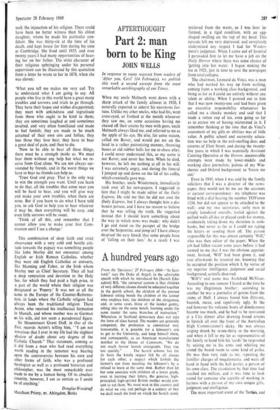A hundred years ago
From the 'Spectator,' 27 February 1869—"In Scot- land," says the Duke of Argyll, in the admirable speech with which he introduced his [Scotch Edu- cation] Bill, "the universal custom is that children of very different classes should be educated together in the parish school, the children of the poorest labourer sitting beside the children of the farmer who employs him; the children of the clergyman, and, in some cases, those of the landed gentry, sitting also on the same bench, learning under the same master the same branches of instruction." Wherefore in Scotland democracy does not take the form of class hatred. The masters are generally competent, the profession is considered very honourable, it is possible for a labourer's son to get to the University, and keep himself there, and consequently, as an American manufacturer testified to the House of Commons, "We do not much favour Scotch immigrants. They rise too quickly." . . . The Scotch scheme has for its basis the kindly respect felt by all classes for each other, a respect which forbids the farmer's son from insulting the labourer's by a refusal to learn at the same desk. Rather than let her sons associate with children of a lower grade, even in learning their letters, the genuine, high- principled, high-spirited British mother would con- sent to eat them. We must wait in this country and do what we can, and perhaps in a century or two we shall reach the level on which the Scotch stand.


































 Previous page
Previous page